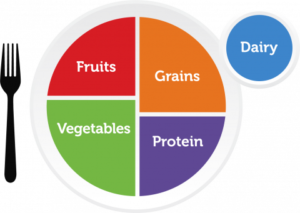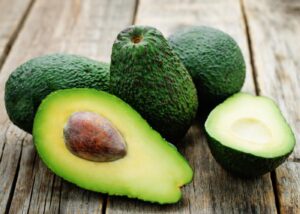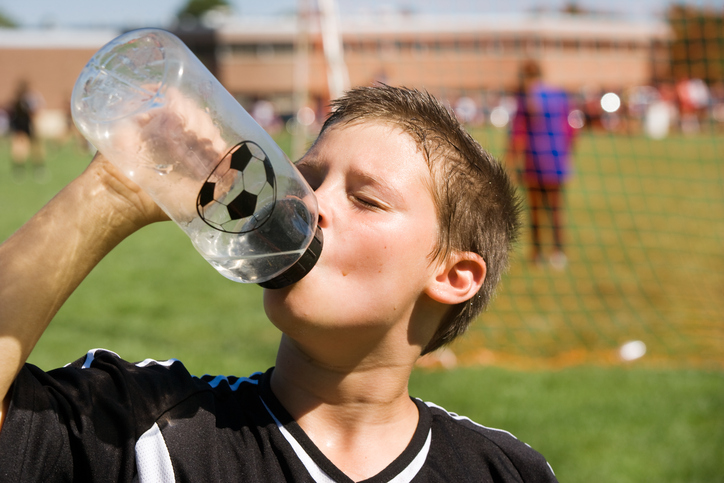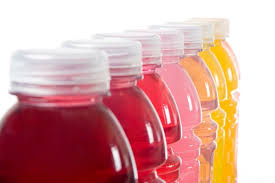
In the realm of youth athletics, achieving peak performance is not solely dependent on rigorous training routines and skill development; proper nutrition plays an equally crucial role. The foods we fuel our body with have a profound impact on aspiring young athletes. In this blog, we’ll delve into the world of nutrition for youth athletes, exploring the fundamentals of what fuels their bodies, fosters growth, and ultimately sets the stage for athletic success. Whether you’re a parent, coach, or young athlete yourself, this guide aims to provide valuable insights into the dietary choices that can make a significant difference in the pursuit of sporting excellence.
Table of Contents
- What are Important Nutrients for Young Growing Athletes?
- What is MyPlate?
- How Much Protein Should a Youth Athlete Consume?
- Are Fats Actually Important?
- Are Vegetarian/Vegan Diets Safe for Kids?
- How Much Water Should a Youth Athlete Aim for in a Day?
- When is the Most Optimal Time for a Youth Athlete to Eat?
- Does Milk Actually Produce Strong Bones?
- What are Red Flags to be Aware of?
What are important nutrients for young growing athletes?
By prioritizing these nutrients, young athletes can unlock their full potential and enjoy healthier athletic journeys.
What is MyPlate?
MyPlate, a visual representation of a balanced diet, is a valuable tool for individuals of all ages, including youth athletes. It divides a typical meal into five essential food groups: fruits, vegetables, grains, protein, and dairy. This approach promotes a well-rounded and nutritious diet, making it particularly relevant for young athletes aiming to optimize their performance. By emphasizing the importance of portion control and the inclusion of a variety of foods from these groups, MyPlate offers a simple yet effective guide to help youth athletes meet their nutritional needs. It encourages them to make healthier choices and develop sustainable eating habits that can support their athletic endeavors and overall well-being.

- Fruits: rich in essential vitamins, minerals, and antioxidants. They provide natural sugars for energy, fiber for digestion, and support overall health. Fruits can aid in recovery and immune function for youth athletes.
- Vegetables: packed with nutrients like vitamins, minerals, and fiber. They offer antioxidants that help reduce inflammation and support recovery. A variety of colorful vegetables provides different health benefits, ensuring a well-rounded diet.
- Grains: Grains, especially whole grains like brown rice, quinoa, and whole wheat bread, offer carbohydrates for energy. These complex carbohydrates provide sustained fuel for athletic performance and help stabilize blood sugar levels.
- Protein: essential for muscle repair and growth. Lean protein sources like chicken, fish, lean meats, beans, and tofu provide amino acids that aid in recovery and contribute to overall muscle health.
- Dairy (or Dairy Alternatives): excellent sources of calcium and vitamin D, crucial for strong bones and preventing injuries. For those who are lactose intolerant or prefer alternatives, fortified plant-based options like almond milk or soy yogurt can be suitable choices.
Balancing these food groups according to individual needs ensures youth athletes receive a diverse range of nutrients, promoting optimal performance, recovery, and long-term health.

How much protein should a youth athlete consume?
For young athletes engaged in regular training and physical activity, ensuring an adequate protein intake is paramount. Protein aids in muscle recovery, reduces the risk of injury, and supports the development of lean muscle mass.
While individual protein needs can vary, a general guideline is to aim for about 1.2 to 2.2 grams of protein per kilogram of body weight daily. For example, a child weighing 22kg (48lbs) should eat 26.4-48.4 grams of protein per day. This can be sourced from lean meats, poultry, fish, dairy, beans, and legumes. Remember that balance is key; young athletes should also consume a variety of other nutrients to maintain overall health and performance.
Are fats actually important?
 Fats, often misunderstood, are indeed vital for youth athletes. Healthy fats, such as those found in avocados, nuts, and olive oil, serve as a concentrated source of energy, providing long-lasting fuel during prolonged exercise. Additionally, fats play a role in absorbing fat-soluble vitamins like A, D, E, and K, which are crucial for overall health. Furthermore, they aid in reducing inflammation, supporting joint health, and protecting vital organs. While moderation is key, including the right types of fats in a young athlete’s diet can contribute to sustained energy, injury prevention, and overall well-being.
Fats, often misunderstood, are indeed vital for youth athletes. Healthy fats, such as those found in avocados, nuts, and olive oil, serve as a concentrated source of energy, providing long-lasting fuel during prolonged exercise. Additionally, fats play a role in absorbing fat-soluble vitamins like A, D, E, and K, which are crucial for overall health. Furthermore, they aid in reducing inflammation, supporting joint health, and protecting vital organs. While moderation is key, including the right types of fats in a young athlete’s diet can contribute to sustained energy, injury prevention, and overall well-being.Are Vegetarian/Vegan diets safe for kids?
Additionally, young athletes should focus on variety to cover all nutritional bases and consider supplementing with vitamin B12 and iron as these nutrients may be less abundant in plant-based diets.
With proper planning, vegetarian and vegan diets can not only fuel youth athletes effectively but also promote overall health and ethical values.

How much water should a youth athlete aim for in a day?
Proper hydration is the cornerstone of any athlete’s regimen. Water is the body’s primary means of regulating temperature, transporting nutrients, and removing waste. For young athletes, maintaining the right balance is even more critical, as they can quickly lose fluids through sweat during strenuous activities.
The recommended water intake for youth athletes can vary depending on factors like age, weight, and activity level. A general guideline to follow is:
- Pre-exercise: Ensure your child drinks about 16-20 ounces of water 2-3 hours before practice or a game.
- During exercise: Encourage them to sip water regularly, aiming for about 7-10 ounces every 10-20 minutes during physical activity.
- Post-exercise: After the game or practice session, have them drink another 16-24 ounces to replace lost fluids.
 Electrolytes, often referred to as the body’s “spark plugs,” hold immense significance for youth athletes. These essential minerals, including sodium, potassium, calcium, and magnesium, are responsible for maintaining proper muscle function, nerve impulses, and hydration levels. When young athletes engage in rigorous physical activities, they lose electrolytes through sweat. Replenishing these vital minerals is crucial to prevent muscle cramps, fatigue, and even more severe conditions like heat-related illnesses. Encouraging electrolyte intake through low-sugar sports drinks or electrolyte-rich foods can help young athletes perform at their best while safeguarding their health on the field or court.
Electrolytes, often referred to as the body’s “spark plugs,” hold immense significance for youth athletes. These essential minerals, including sodium, potassium, calcium, and magnesium, are responsible for maintaining proper muscle function, nerve impulses, and hydration levels. When young athletes engage in rigorous physical activities, they lose electrolytes through sweat. Replenishing these vital minerals is crucial to prevent muscle cramps, fatigue, and even more severe conditions like heat-related illnesses. Encouraging electrolyte intake through low-sugar sports drinks or electrolyte-rich foods can help young athletes perform at their best while safeguarding their health on the field or court.
Warning Signs of Dehydration:
Dehydration can lead to a decline in athletic performance and even pose health risks. Be on the lookout for these signs:
- Thirst: If your child feels thirsty during exercise, it’s a sign they need to drink more water.
- Dark Urine: Urine that is dark yellow or amber indicates dehydration. Light yellow or pale straw-colored urine is a good sign of proper hydration.
- Fatigue and Cramps: If your young athlete complains of unusual fatigue or experiences muscle cramps, dehydration may be a contributing factor.
- Dizziness or Nausea: These symptoms can occur when the body lacks adequate fluids.
When is the most optimal time for a youth athlete to eat?
Ideally, they should eat a balanced meal about 2-3 hours before training or a game.
This allows for digestion and provides a steady source of energy. After exercise, consuming a meal or snack within 30 minutes to 2 hours is vital for muscle recovery, refueling energy stores, and replenishing lost fluids and nutrients. Additionally, maintaining regular meals and snacks throughout the day, approximately every 3-4 hours, helps sustain energy levels and provides a continuous supply of nutrients to support growth and athletic endeavors.
Does milk actually produce strong bones?
 Milk has long been associated with promoting strong bones, and it’s not without reason. Milk and other dairy products are rich sources of calcium, a mineral essential for bone health. Calcium is a key component of bone structure, and consuming enough of it is important during the growth and development years of youth.
Milk has long been associated with promoting strong bones, and it’s not without reason. Milk and other dairy products are rich sources of calcium, a mineral essential for bone health. Calcium is a key component of bone structure, and consuming enough of it is important during the growth and development years of youth.
However, it’s worth noting that milk is not the only source of calcium, and individuals who are lactose intolerant or follow a vegan diet can obtain this mineral from fortified plant-based milk alternatives, leafy greens, almonds, and other sources.
While milk can certainly contribute to strong bones, a well-balanced diet that includes various calcium-rich foods is equally effective in supporting bone health.
What are red flags to be aware of?
A registered dietitian or healthcare professional can provide guidance and support to rectify these issues and ensure that a young athlete’s nutritional needs are met for their growth, health, and athletic success.

Bottom Line
The path to success for young athletes extends beyond the field or court; it lies in the choices they make at the dining table. By embracing a balanced and nutritionally sound diet, youth athletes can fuel their passion for sports, promote long-term health, and unlock their full athletic potential, ensuring a bright and promising future in their chosen pursuits.
Jessica Hiestand DPT, CSCS

This post was written by Dr. Jessica Hiestand in September of 2023.
Learn more about Jessica on our about page: https://gopt.co/people/jessica-heistand/